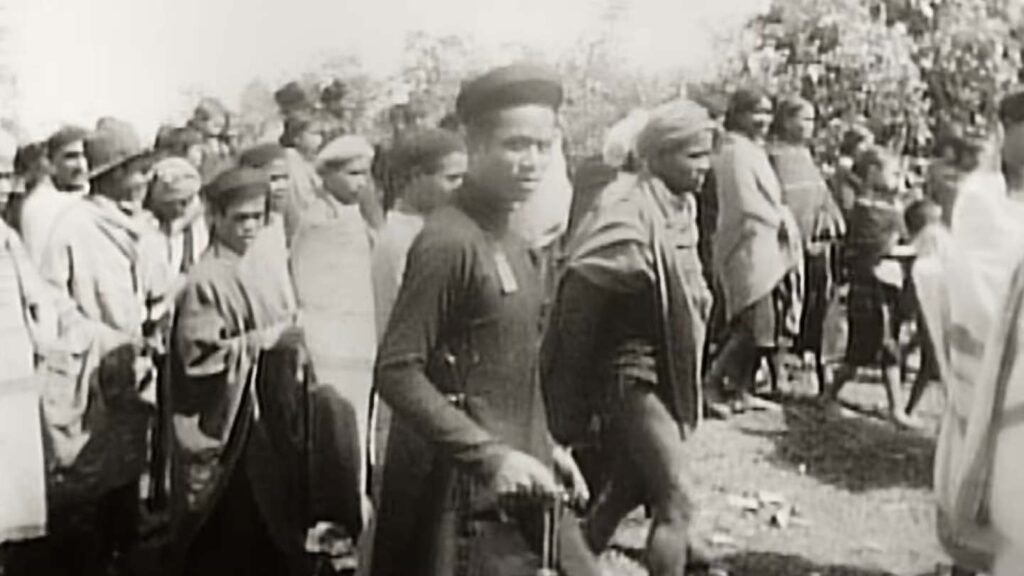France began its colonization of Algeria in 1830, gradually turning it into an integral part of its national territory by 1848. Over more than a century of rule, the colonial administration introduced European-style systems to support settler communities, extract resources, and maintain control over the population.
Insurance played an important role in this colonial economic structure. It protected settler-owned assets, backed industrial and agricultural ventures, and supported infrastructure development. However, access to these services was mostly limited to European settlers.
This post explores the history of insurance in Algeria during the French colonial period. It covers the origins of the system, its structure, exclusion of indigenous people, and its lasting legacy after independence.
Historical Background: French Colonial Algeria
France began its invasion of Algeria in 1830, starting a process that would eventually transform the territory into an integral part of the French state by 1848.
This period of administrative integration involved dividing Algeria into departments governed under French civil law, creating a colonial system designed to control and exploit the region.
Economic priorities during colonial rule focused heavily on resource extraction and the development of settler agriculture. The French administration prioritized the interests of European settlers, who were encouraged to establish farms, vineyards, and businesses.
These settler communities grew rapidly and played a key role in shaping Algeria’s economic institutions.
The rise of settler communities influenced political and economic life throughout the colony. Settlers dominated land ownership and had privileged access to financial services and infrastructure.
This control reinforced a colonial economy centered on European interests, which later shaped the development of institutions such as banks, courts, and insurance companies.
Introduction of Insurance Systems in Algeria
During the French colonial period, Algeria’s insurance sector was largely shaped by models imported directly from metropolitan France. These insurance systems were introduced primarily to protect the interests of European settlers and colonial businesses.
The sector evolved alongside the colonial economy, focusing on safeguarding property, trade, and agricultural investments in the region.
Imported French Insurance Models
French insurance companies extended their operations into Algeria soon after the establishment of colonial rule. These firms brought with them the same types of insurance products that were common in France, adapting them to serve the local settler population and colonial enterprises.
The main types of insurance introduced included:
- Fire insurance to protect settler-owned homes, businesses, and agricultural properties from damage caused by fire.
- Marine insurance that covered trade routes and shipping activities between Algeria and France, supporting the colony’s role in international commerce.
- Life insurance policies designed to serve French citizens living in Algeria, ensuring financial security for settler families.
- Agricultural insurance focused on crops such as vineyards and grain, which were central to the settler economy.
These insurance products played a vital role in supporting the colonial economy by reducing financial risks related to property, trade, and agriculture.
Legal and Institutional Framework
The insurance sector in Algeria operated under the direct application of French civil law. Colonial authorities enforced regulations that mirrored those in metropolitan France, maintaining strict oversight of insurance companies and policies.
One key legal factor was the Code de l’indigénat, a set of laws that legally marginalized indigenous Algerians, restricting their participation in many aspects of economic life, including insurance.
This legal framework contributed to a system where insurance services were primarily accessible to European settlers and colonial enterprises.
French insurance companies dominated the market throughout the colonial period. The colonial administration’s regulatory approach ensured that local Algerian involvement in the insurance industry remained minimal.
Insurance activities were closely tied to colonial infrastructure projects such as railways, ports, and settler agriculture, reflecting the broader goals of economic exploitation and control.
Access and Exclusion: Indigenous Algerians and Insurance
During the French colonial period, indigenous Algerians faced significant barriers to accessing formal insurance services. These obstacles stemmed from economic, legal, cultural, and linguistic factors that effectively excluded much of the native population from the colonial insurance system.
Economic and Legal Barriers for Indigenous Populations
Indigenous Algerians often lacked the financial means and legal standing necessary to participate in formal insurance markets. The Code de l’indigénat legally restricted many rights of the native population, including property ownership, which is a key requirement for most insurance policies.
Without ownership of land or assets, indigenous Algerians had little incentive or opportunity to purchase insurance.
Moreover, economic marginalization limited access to stable employment and income. This financial exclusion meant that insurance premiums were unaffordable for most indigenous people.
Consequently, insurance products primarily served European settlers and colonial businesses, reinforcing economic inequalities.
Cultural and Linguistic Obstacles to Accessing Insurance
In addition to legal and financial barriers, cultural and language differences presented further challenges. Insurance policies, written in French and embedded within European legal frameworks, were difficult for many indigenous Algerians to understand.
Limited access to education and language barriers prevented native populations from fully engaging with insurance companies.
Additionally, traditional Algerian communities often relied on informal support systems and mutual aid rather than formal insurance. This cultural preference, combined with the inaccessibility of colonial insurance institutions, deepened the divide between settlers and indigenous people.
Impact of Exclusion on Algerian Society and Economy
The exclusion of indigenous Algerians from insurance services had long-lasting effects on society and the economy. Without formal risk protection, native communities remained vulnerable to losses caused by fire, crop failure, or economic disruption. This vulnerability hindered economic development and reinforced colonial hierarchies.
Furthermore, the lack of inclusion in financial systems limited indigenous Algerians’ ability to build wealth and secure economic stability.
The colonial insurance system, therefore, contributed not only to economic segregation but also to the persistence of inequality in Algeria well beyond the colonial era.
Insurance’s Role in Colonial Enterprises
Insurance played a crucial role in supporting the economic activities of French colonial enterprises in Algeria. By managing risks associated with agriculture, industry, and public infrastructure, insurance helped secure investments and maintain colonial economic stability.
Agricultural Insurance for Settler Farms
Agricultural insurance primarily protected settler-owned farms, which focused on crops like vineyards and grain. These policies offered financial security against risks such as crop failure, natural disasters, and fire.
By reducing uncertainty, insurance encouraged investment in commercial farming and increased agricultural productivity within settler communities.
Industrial Insurance for Mining and Oil Extraction
Colonial Algeria’s growing mining and oil sectors relied heavily on industrial insurance. Mining operations, including extraction of minerals, and early oil exploration projects faced significant operational risks.
Insurance covered potential damages to equipment, accidents, and interruptions in production. This coverage helped colonial companies manage costly risks, facilitating resource extraction that fueled the French economy.
Public Works Insurance Supporting Infrastructure Projects
Public infrastructure, including roads, railways, and ports, formed the backbone of colonial Algeria’s economic system. Insurance policies protected these projects from damage during construction and operation.
By mitigating financial losses due to accidents or natural events, insurance supported the expansion of transportation and communication networks essential for the colony’s administration and commerce.
Post-Colonial Transition and Legacy
After Algeria gained independence in 1962, the country inherited a fragmented insurance system that had been designed primarily to serve colonial interests. This system required significant restructuring to meet the needs of a newly sovereign nation and its diverse population.
The post-independence government moved quickly to nationalize many sectors of the economy, including the insurance industry. Nationalization aimed to centralize control, promote economic development, and expand insurance coverage to the broader Algerian population, which had previously been excluded under colonial rule.
This shift allowed Algeria to create state-run insurance companies focused on serving national priorities rather than colonial ones.
Over time, these changes influenced the structure of Algeria’s financial and insurance sectors. Although nationalization helped broaden access, the legacy of the colonial system remained visible in market practices, legal frameworks, and institutional arrangements.
Algeria faced challenges in modernizing the insurance industry, integrating indigenous needs, and fostering competition.
Overall, the post-colonial transition marked a critical turning point. It set the foundation for a more inclusive insurance sector while highlighting the lasting effects of colonial policies on economic development and social equity.
Frequently Asked Questions (FAQ)
What types of insurance were available in colonial Algeria?
During the French colonial period, the main types of insurance included fire, marine, life, agricultural, and industrial insurance. These services primarily catered to European settlers and colonial businesses, protecting property, trade, crops, and industrial operations.
Why were indigenous Algerians excluded from insurance?
Indigenous Algerians faced exclusion due to legal discrimination under the Code de l’indigénat, which limited their rights, including property ownership. Additionally, economic marginalization and lack of financial resources made it difficult for native populations to access insurance products offered mainly to settlers.
How did insurance support French colonial enterprises?
Insurance played a key role in managing risks associated with agriculture, mining, oil exploration, and infrastructure development. By providing financial protection against losses, insurance helped colonial enterprises maintain stability and promote economic growth.
What happened to Algeria’s insurance sector after independence?
After independence in 1962, Algeria’s government nationalized the insurance sector to restructure the economy and increase access. This move aimed to extend insurance coverage beyond settler interests and include the broader population, setting the stage for a more inclusive financial system.



